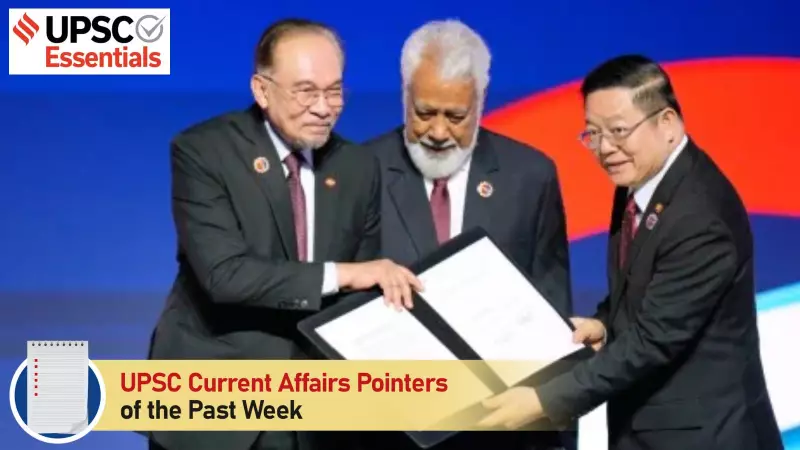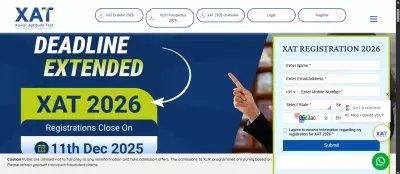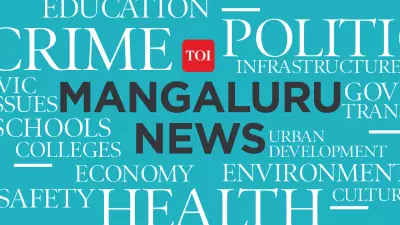
This week brought significant developments across multiple sectors that UPSC aspirants need to bookmark for their preparation. From diplomatic engagements to environmental policies, here's your essential weekly current affairs roundup.
International Relations & Diplomacy
India-Australia Strategic Partnership Strengthens
The 2+2 Ministerial Dialogue between India and Australia concluded with landmark agreements on defense cooperation and economic collaboration. Both nations committed to enhancing maritime security in the Indo-Pacific region, marking a significant step in bilateral relations.
UN Peacekeeping Contributions
India continues to be among the top contributors to UN peacekeeping missions, with recent deployments focusing on conflict zones in Africa. This reinforces India's commitment to global peace and security.
Environmental & Climate Developments
National Air Quality Initiative
The government launched a comprehensive air quality management program for 100 cities, focusing on real-time monitoring and pollution control measures. This initiative aims to tackle the growing concern of urban air pollution across major metropolitan areas.
Coastal Regulation Zone Updates
New guidelines for Coastal Regulation Zones were announced, emphasizing sustainable development while protecting fragile coastal ecosystems. The revised framework balances economic activities with environmental conservation.
Economic & Policy Reforms
MSME Support Package
A new support package for Micro, Small, and Medium Enterprises includes easier credit access, technology upgradation subsidies, and export promotion incentives. This move aims to boost the sector's contribution to India's economic growth.
Digital Infrastructure Expansion
The government approved phase three of the BharatNet project, aiming to provide high-speed internet connectivity to all gram panchayats by 2026. This digital push is expected to bridge the urban-rural digital divide.
Science & Technology
Space Research Milestones
ISRO announced successful testing of new satellite technology for improved weather forecasting and disaster management. The advancements promise enhanced accuracy in predicting cyclones and other natural calamities.
Healthcare Innovation
Research institutions reported breakthroughs in affordable medical technology, particularly in diagnostic equipment and telemedicine solutions. These innovations aim to make quality healthcare more accessible in remote areas.
Social Sector Initiatives
Education for All Program
A new scheme focuses on improving learning outcomes in government schools, with special emphasis on digital literacy and vocational training. The program targets skill development from secondary education level.
Women Empowerment Measures
Several states launched new initiatives for women's safety and economic empowerment, including enhanced working women hostel facilities and skill development programs specifically designed for female entrepreneurs.
These developments highlight the dynamic nature of national and international affairs that form the core of UPSC examination preparation. Staying updated with such comprehensive information gives aspirants the competitive edge needed to excel in their civil services journey.





